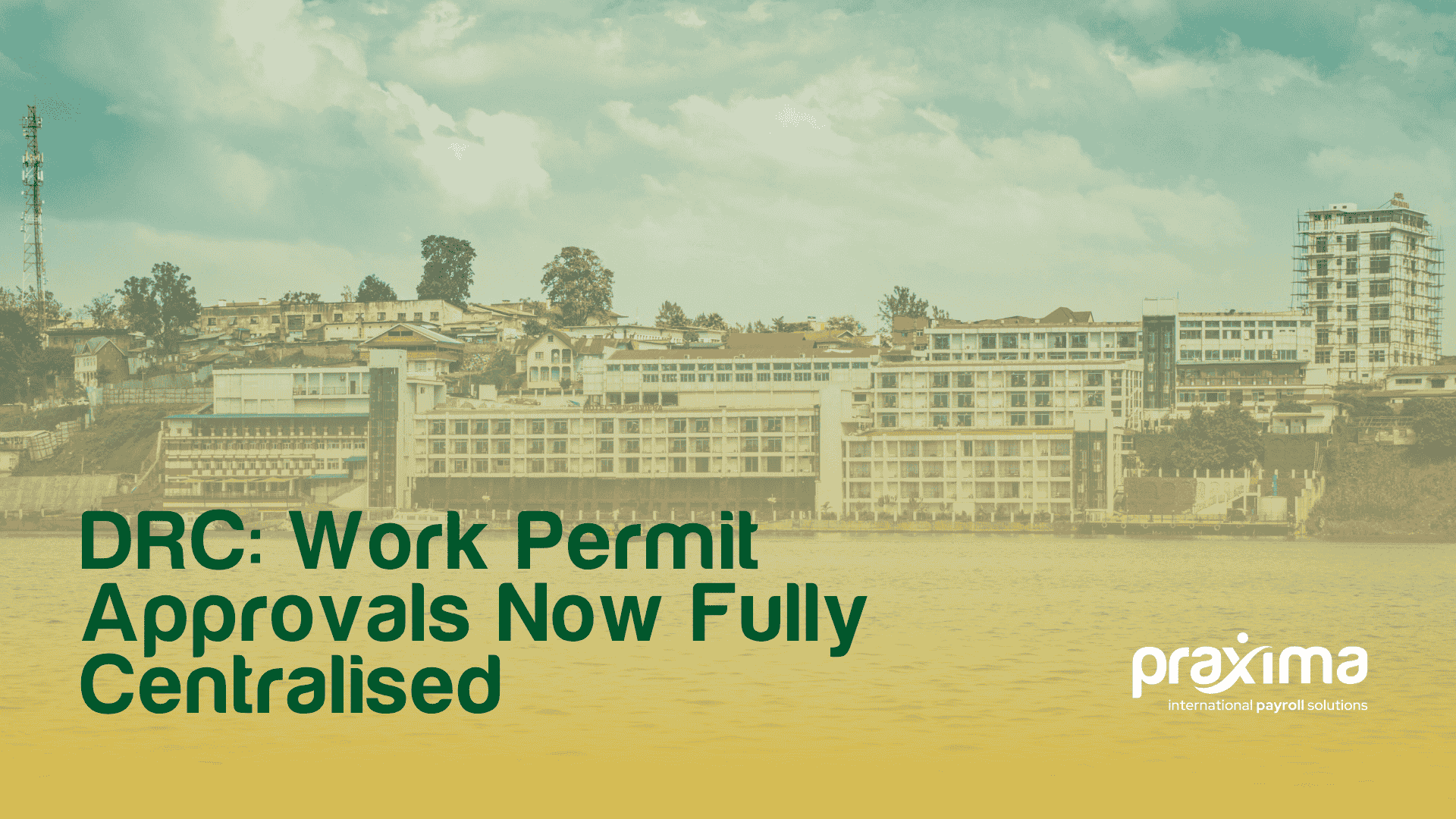
A recent client case highlighted delays in securing a work permit for an expatriate employee relocating to a smaller city in the Democratic Republic of Congo (DRC). These delays reflect a broader shift in the country’s immigration landscape.
In 2024, the Ministry of Labour, Employment and Social Welfare and the Direction Générale de Migration (DGM) introduced a national directive restructuring how work permits and residence cards are processed.
Since 2024, all work permits and expatriate labour cards must be approved and issued in Kinshasa by the central DGM and Ministry of Labour.
Provincial immigration offices may still receive or forward applications, but they no longer have authority to issue or renew permits. All approvals now rest with national authorities.
“All DRC work permits must now be approved in Kinshasa, resulting in slower processing and greater national oversight.”Speak to a Specialist
The centralisation aims to improve labour data management and national oversight. However, it has resulted in slower processing times due to the additional step of validation in Kinshasa.
Applications must now include national-level authorisations, including labour quota validation, work card issuance and DGM permit approval. Renewals follow the same process.
Companies should coordinate directly with DGM headquarters or use accredited immigration agents in Kinshasa to avoid delays and ensure correct compliance.
Businesses operating outside Kinshasa should expect increased scrutiny and extended processing times. Planning ahead is essential, particularly for expatriate placements in regional hubs.
If your organisation is expanding into the DRC, our team can help you navigate the centralised immigration framework.
If this article raised questions or highlighted areas you’d like to understand better, let’s talk.Our team can walk through the details, implications, and practical considerations for your business.